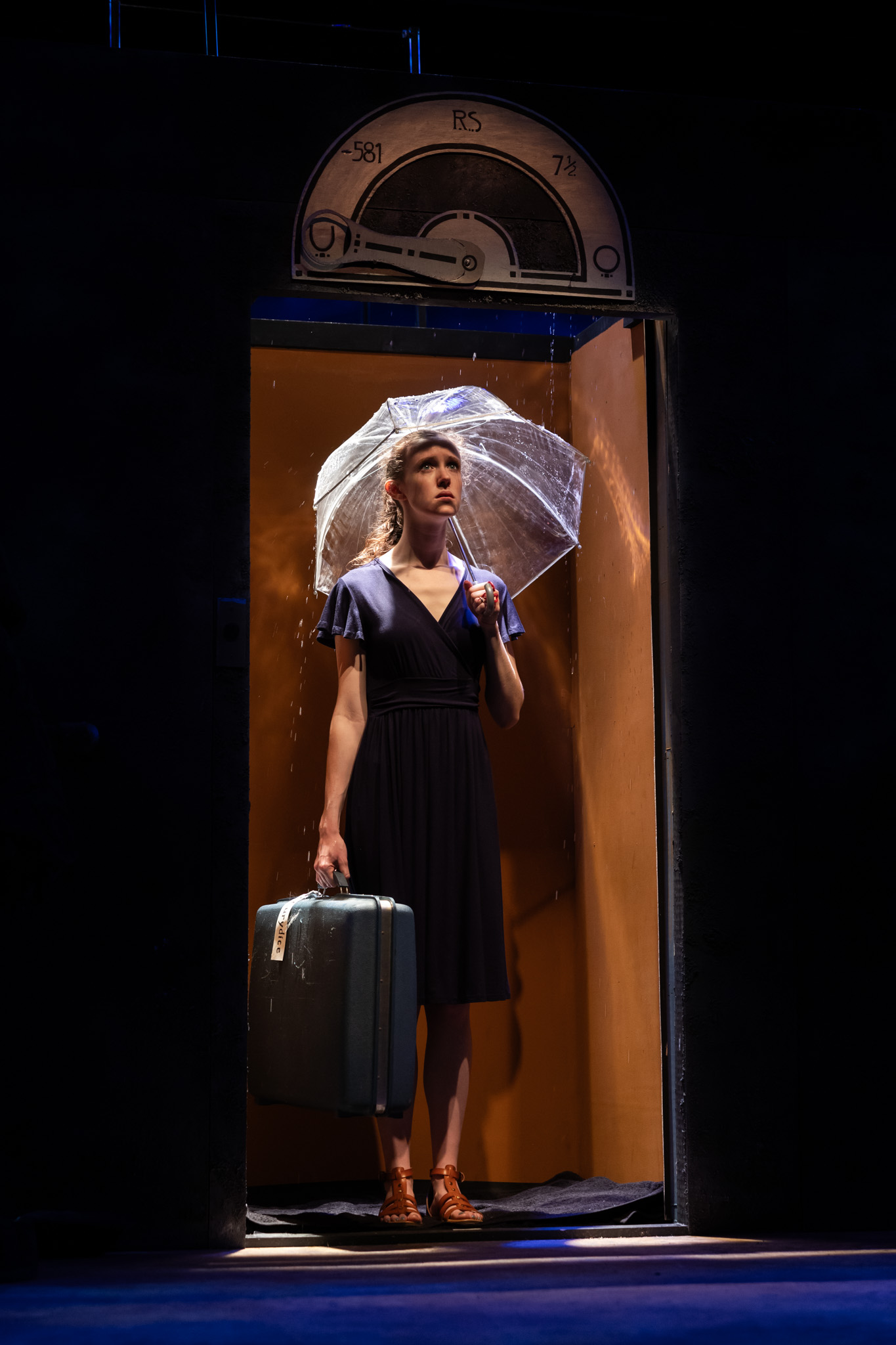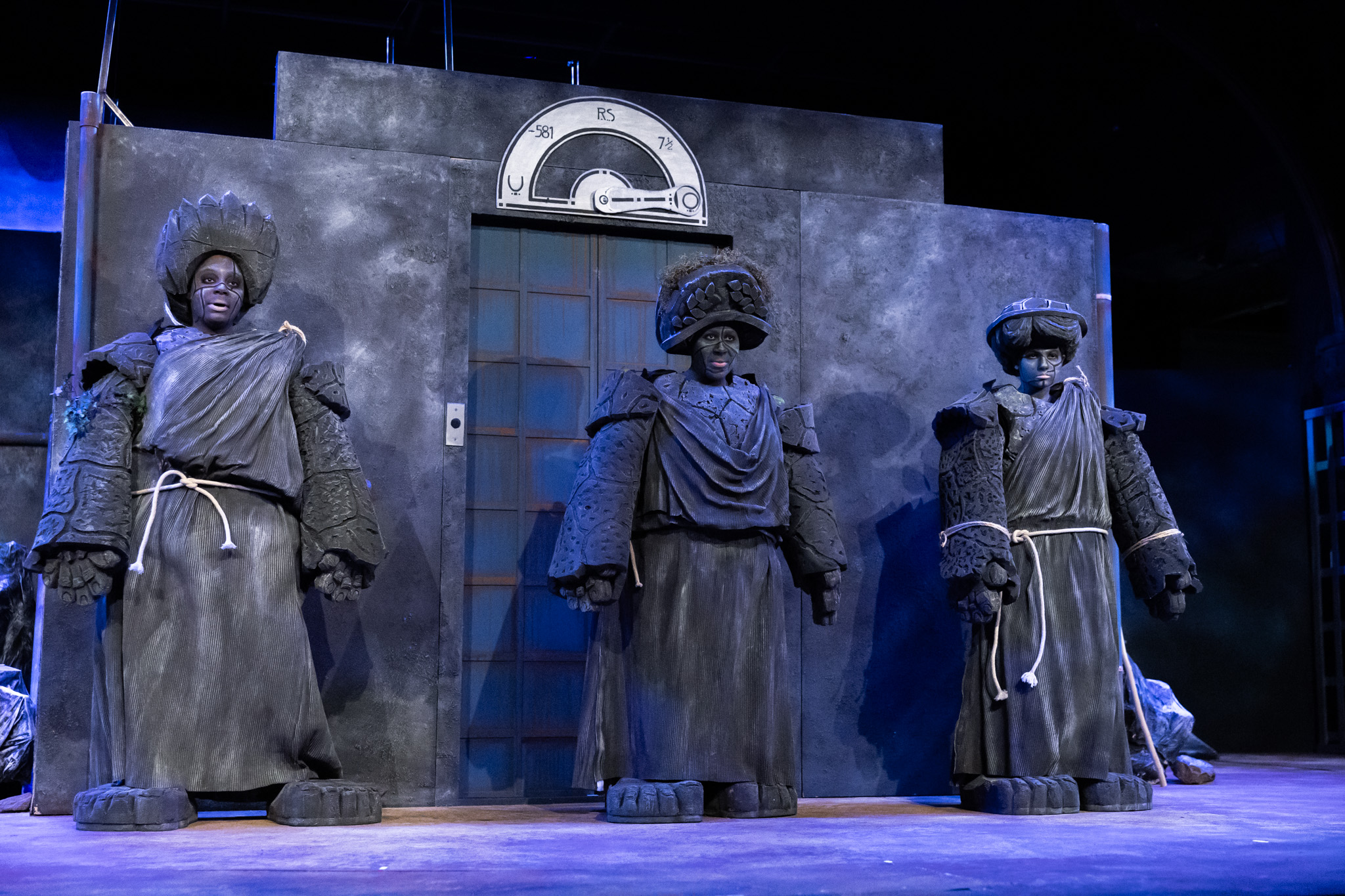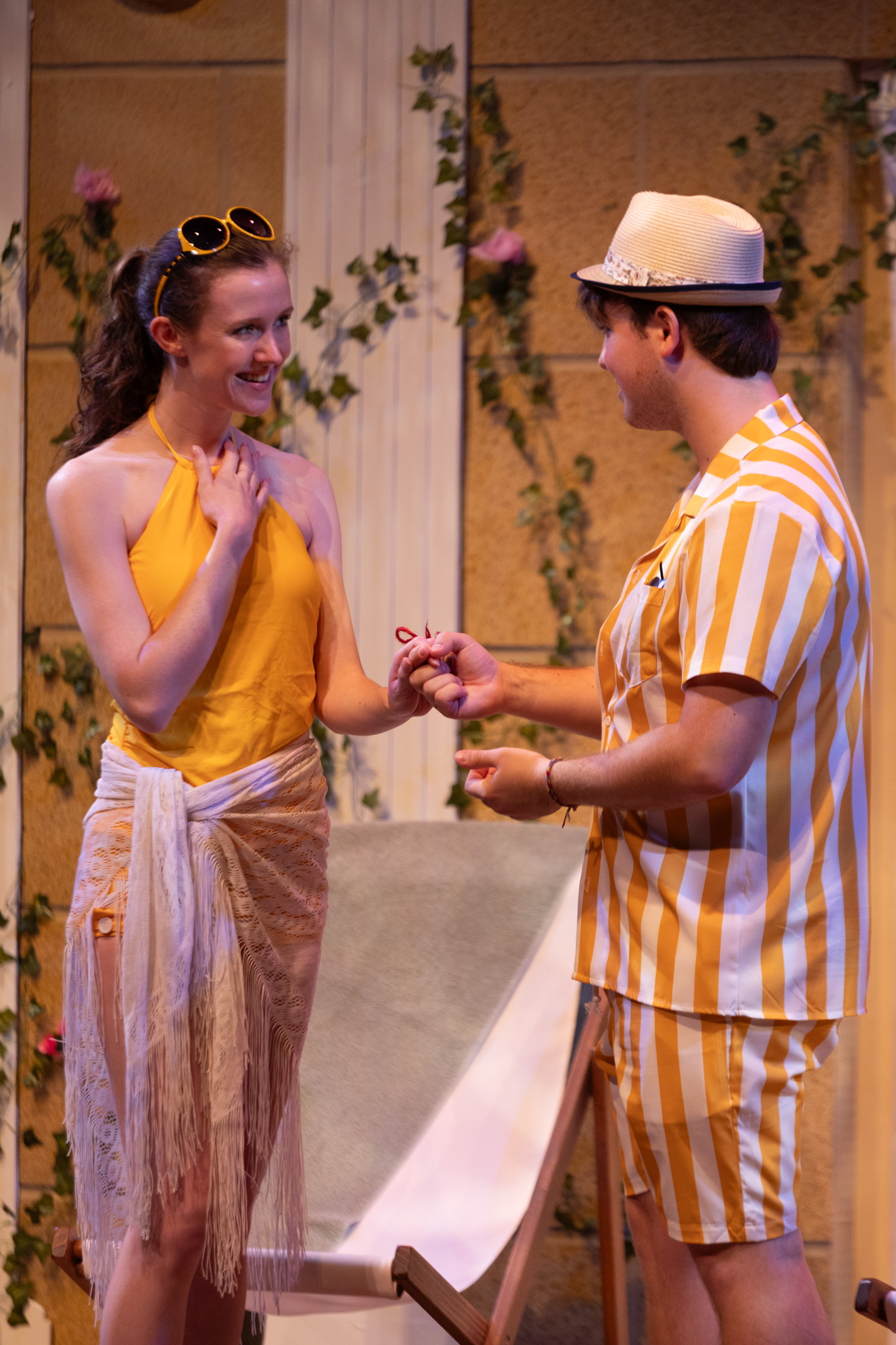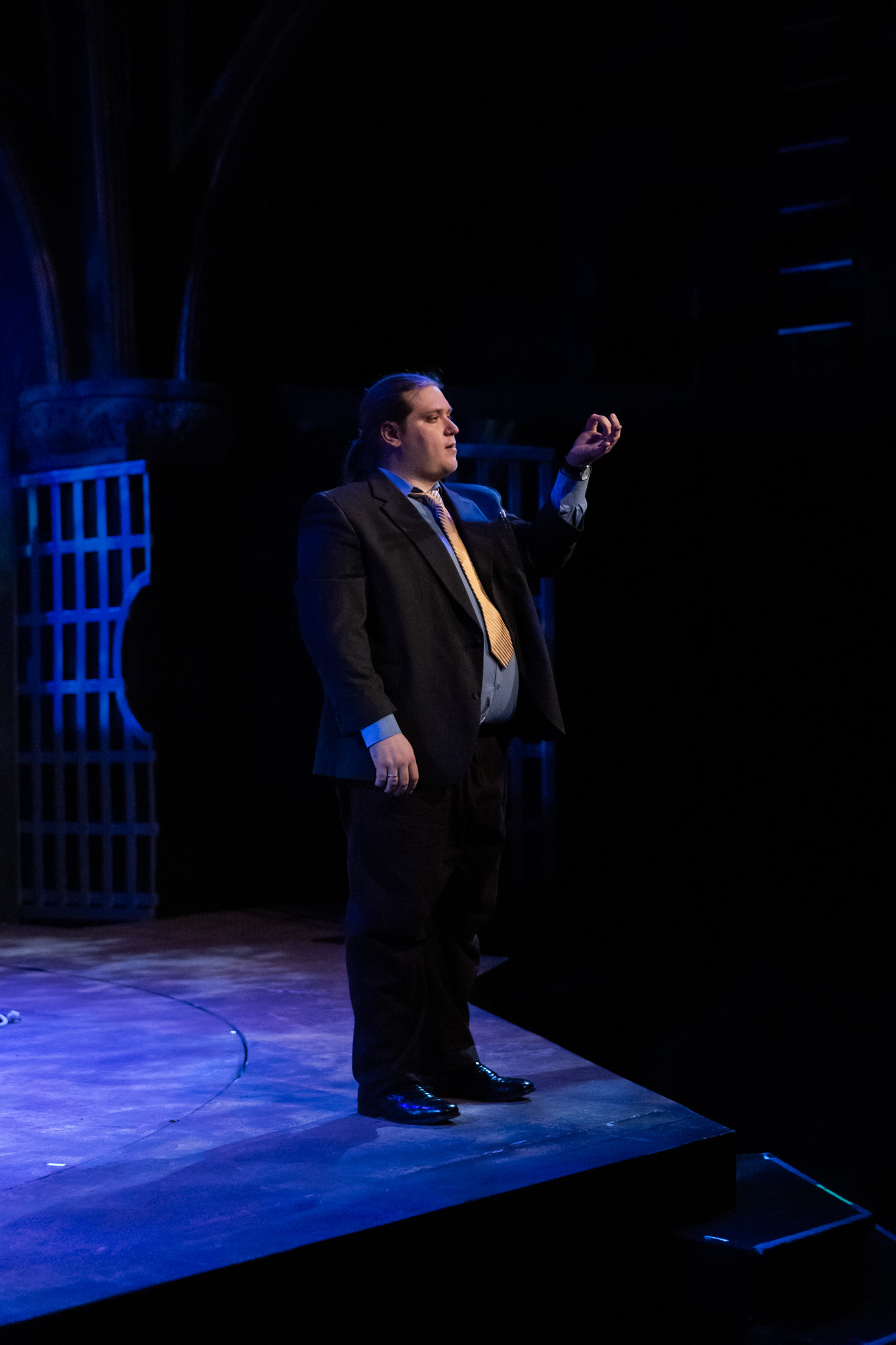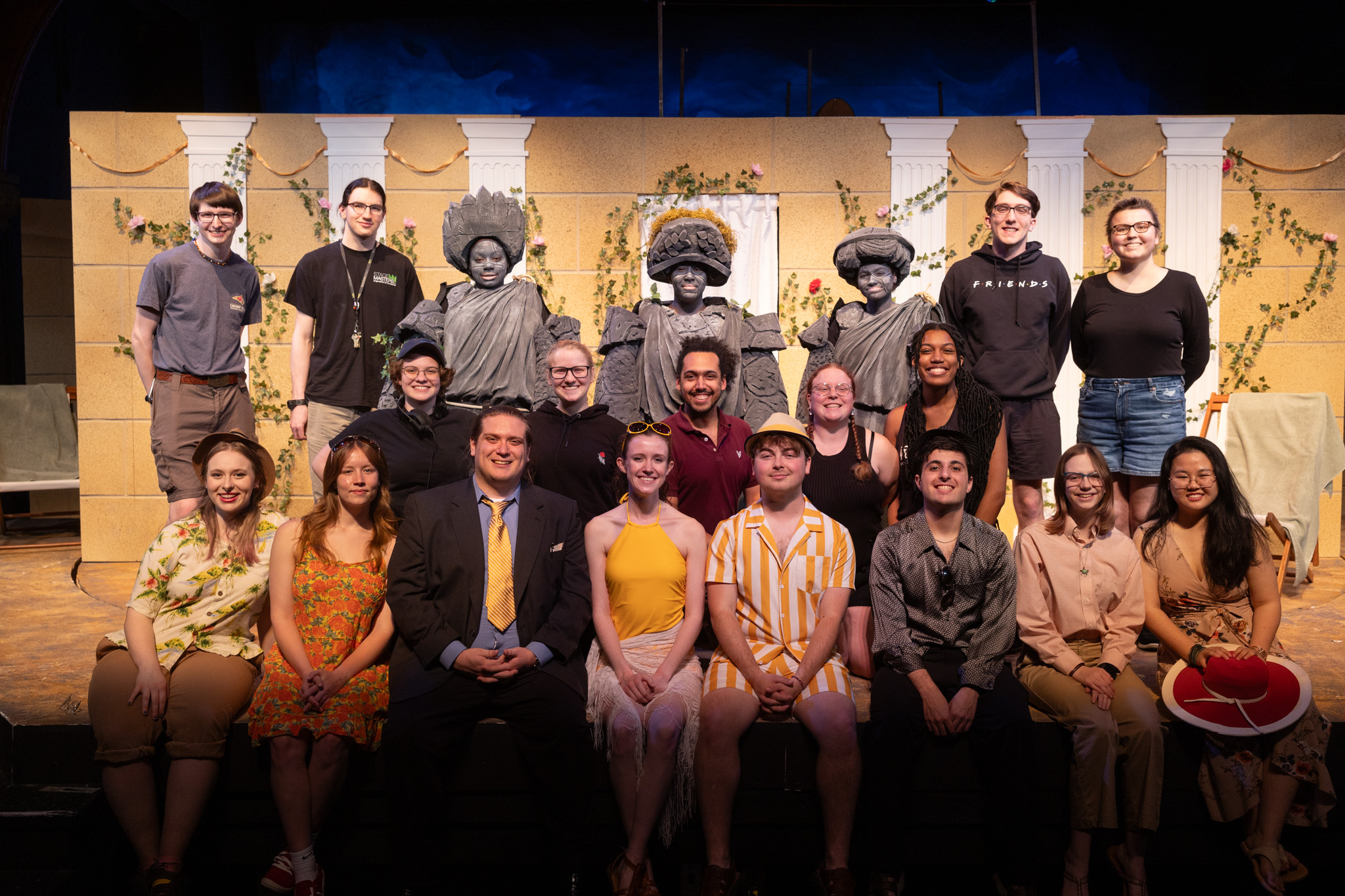
The Department of Theatre Arts at Gettysburg College debuted “Eurydice” by Sarah Ruhl on Thursday night at Kline Theater. (Photo Grace Jurchak/The Gettysburgian)
By Leah Nath, Staff Writer
The Department of Theatre Arts at Gettysburg College debuted “Eurydice” by Sarah Ruhl on Thursday night at Kline Theater. This was a smaller show as the cast only had eleven members and was supported by a crew more than twice that size.
Director Weston Jackson ’14 notes in the program that the cast only had four to five weeks to prepare for this performance and shared, “I am truly in awe of the amazing work that went into this show and deeply indebted to the talented team I was fortunate enough to work with.”
The play is a retelling of the famous Greek myth of the musician Orpheus (Elliott Wakefield ’26), though this time, the story is centered around his wife, Eurydice (Libby Drew ’24). The original myth of Orpheus describes the god of music, Apollo, striking down Orpheus’ wife in a fit of jealousy. Orpheus cracks open the rocks to the Underworld with his lyre and plays so devastatingly that the lord of the Underworld, Hades, allows him to take Eurydice back to the living under the condition that Orpheus can trust his wife enough to not look at her as they return to the surface. Nearly home, Orpheus becomes afraid of the silence behind him and turns around, seeing Eurydice’s face one last time before she disappears from him forever.
In this retelling, the story focuses more on the power of choice, the pain of loss and the oft-forgotten merit of Eurydice as a woman, more than as a wife.
On his interest in the play, Jackson said, “…the premise itself was intriguing: let’s get Eurydice’s side of this story that has existed for a millenia [sic] and has focused (mostly) on Orpheus. The most notable difference in this update: Eurydice has agency!”
Eurydice’s dead father (Eric Lippe ’24), who wrote a letter to her from the Underworld for her wedding day, greets Eurydice when she arrives at the Underworld. Wakefield’s Orpheus, pompous and self-absorbed in their courting, becomes wholly obsessed with his devotion to Eurydice in her death, but Eurydice only remembers Orpheus with help from her father upon their reuniting.
Eurydice and her father spend their time together reminiscing about Eurydice’s childhood and her father’s mother, telling stories and singing together as they enjoy each other’s company. Drew and Lippe offer a heart-warming representation of a pure father-daughter connection with comfortable chemistry and nuanced emotion. When Orpheus gets to the Underworld to take Eurydice home with him, she begins to have doubts about leaving her newfound home in the Underworld, particularly after realizing how alone Orpheus often made her feel.
Discovering her own intelligence, self-worth, and agency, Eurydice chooses the life (or death) she wants, rather than allowing her fate to remain wholly in Orpheus’ hands, as the story typically goes. The end of the plot leaves the audience pondering the concept of death and the power of free will, a powerful twist on a legend usually representing the lack of free will.
Performances of the show were also given at Kline Theater on April 19 and 20 at 7:30 p.m. and on April 21 at 2 p.m.

